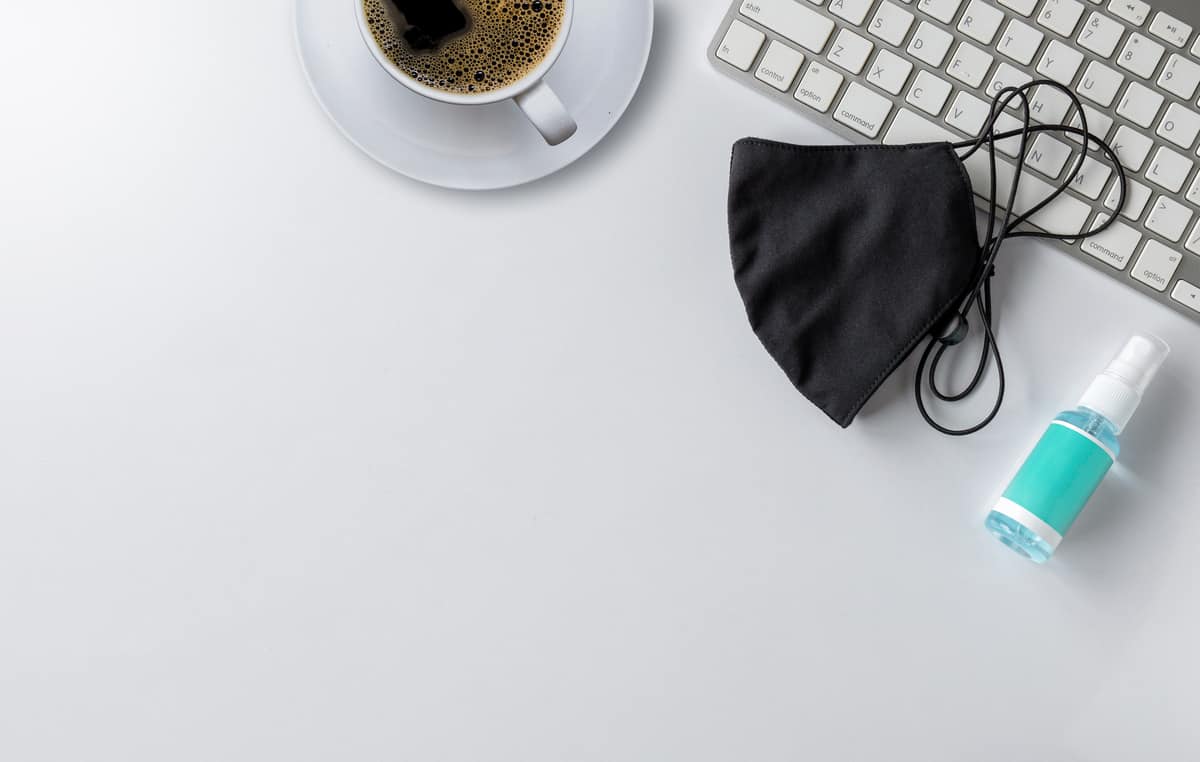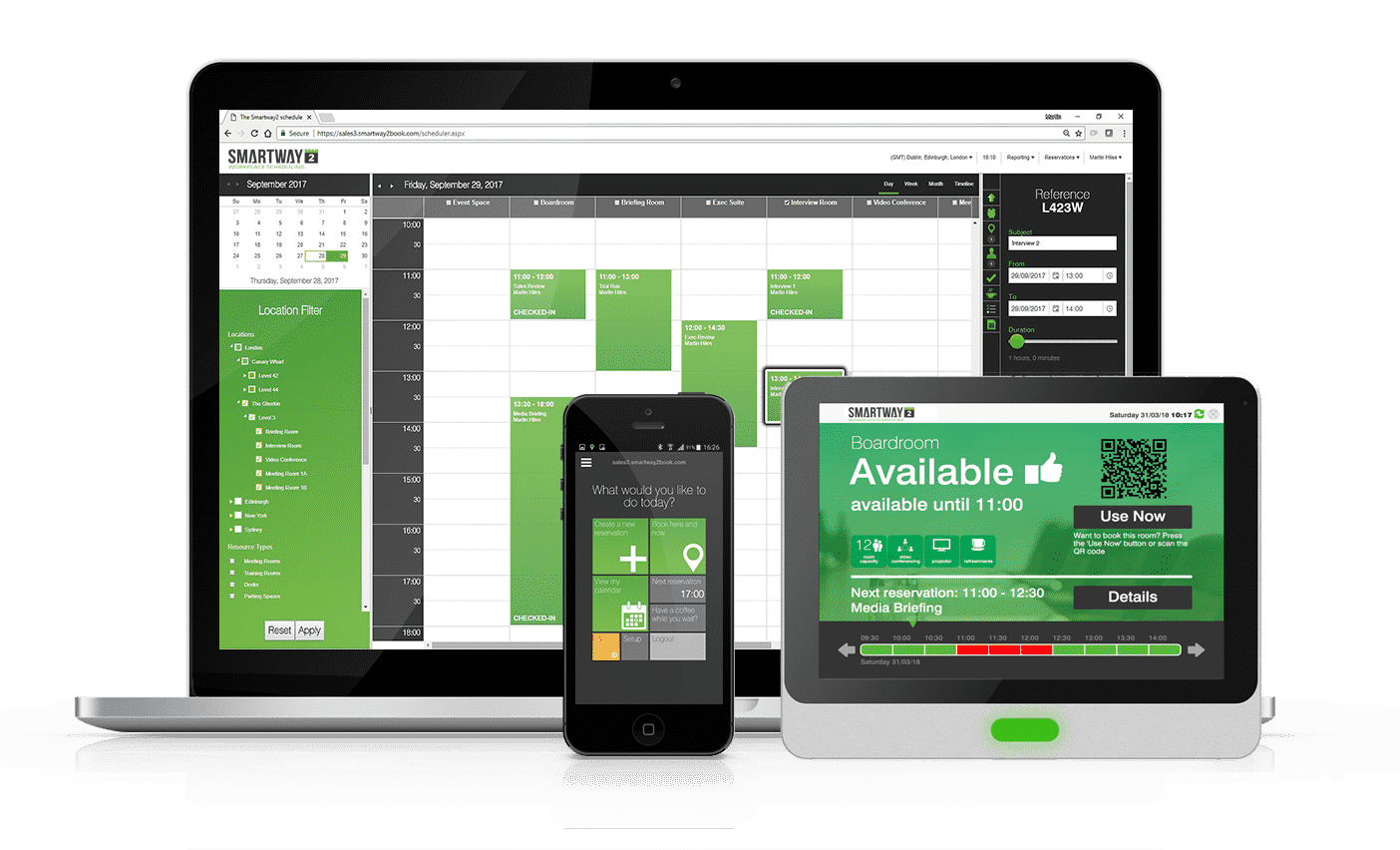
Desk Sharing: A Fundamental Feature of the Future Office
Has your company introduced desk sharing? If not, it’s something you may want to consider since pandemic has changed the way we work, shifting away from the 9-5, day in day out in the office at an assigned desk. More companies are adopting desk sharing to adjust to the new normal, given that so many are now either working remotely or introducing hybrid working, i.e. splitting their time between home and the office.
If your organization is looking at desk sharing, office hoteling or hybrid working, you might be interested in our webinars. To see automated desk sharing in action, book a demo now.
Smartway2 research has shown that the overwhelming majority of workers, more than 90%, prefer a hybrid model moving forward, meaning they work some days from home and some days from the office. Only a small percentage of workers want to continue working from home full-time or return to the office full-time. As a result, many employers are trying to transition away from the 1-to-1 ratio of people to desks, and instead are turning to hot desking or hoteling and using booking systems to make the process easier. The switch from a conventional office set-up to desk sharing can cut down on real estate costs and help to reduce the carbon footprint.
Read on for a complete guide of everything you need to know about desk sharing.
What is desk sharing?

Let’s start with the basics: What is desk sharing? Desk sharing is exactly what it sounds like, meaning employees working at the same company share desks instead of having their own individual assigned desk or office. Desk sharing can be implemented in several different ways. For example, 2 or 3 employees who work different shifts could all use the same desk because none of them are in the office at the same time, or a system can be instituted where employees reserve a specific space in which they will work for a particular amount of time.
Hot Desking and Office Hoteling

Hot desking and office hoteling are perhaps the two most common types of desk sharing. Before we delve further into the topic, let’s make sure you are familiar with what each one of these strategies entail.
At Smartway2 we have extensively researched the concepts of hot desking and office hoteling. One of our recent blog posts describes the difference between the two options in the following way: “When people talk about ‘hot-desking’, often they’re referring to the practice of grabbing an available desk when you show up at the office. On the other hand, definitions of ‘hoteling’ typically refer to people booking a desk in advance, before they arrive. More often than not, the terms ‘hot-desking’ and ‘hoteling’ are used interchangeably.”
Implementing Desk Sharing

An article posted on Open Sourced Workplace a network where professionals share information, knowledge, insights and experiences, explains some of the key elements you should consider when trying to implement desk sharing. According to the article, “The desk-sharing policy is implemented efficiently, only when the employees have access to multiple facilities within the office where different tasks can be done. Adding additional work zones with an optimal location, meeting rooms for informal conversations or space where small teams can conduct their meetings are just a few options that can be implemented for a better workplace.”
Desk Sharing: Tips for Success

An internet search will provide many results offering advice on ways to make the transition to desk sharing easier. We’ve done the research and found that one great resource is this article written by Martin Atkinson, the managing director of PiMS Workspace.
Here are 8 tips that Atkinson recommends for successfully implementing desk sharing:
- Understand the basics
- Keep in clear
- Provide adaptable workstations
- Improve storage
- Create a break-out-zone
- Avoid isolation
- Invest in flexible technology
- Keep the noise down
Using desk booking software

Desk booking software can make all the difference between success or failure when it comes to implementing desk sharing.
Smartway2 offers a desk booking system for the modern, agile workplace. Our software is easy to use and flexible. It can also help you to avoid many of the common pitfalls of hot desking. Below are just a few advantages that our unique software provides:
- Set simple desk booking rules so the right behaviors naturally emerge, e.g. you can’t book the same desk for more than 3 days in a row
- Use ‘Smart Desk Recovery’ to release unused desk bookings
- Improve wellbeing by making certain desks available to people with specific ergonomic needs
Challenges of Desk Sharing

Nowystyle, a European-based furniture manufacturer and advisor, published a helpful piece on desk sharing. Written by Workplace Consulting Manager Ewelina Solecka, she describes the initial challenges of making the change to desk sharing, “The implementation of desk-sharing is a huge challenge for a company. It involves changing habits, work philosophy, management style (the staff becomes more dispersed), information flow and even communication methods. It also imposes technological changes and the rearrangement of an office space.”
Solecka goes on to say, “The decision of whether or not to implement desk-sharing into a company should be based on a series of analyses. The work style of individual organisational units and the desk occupancy level in particular departments should undoubtedly be surveyed. Detailed data are key also at the next stage – when it comes to designing an office space. This is crucial, since the office arrangement project must be tailored to the company’s character as closely as possible. Employees, who are the target office users, should have access to all the necessary work zones in their new office. Moreover, there must be the right number of zones, all optimally located.”
Related Statistics

An article in Inc. Magazine, a publication dedicated to owners and managers of growing private companies, shares a shocking statistic that just might make you want to consider shifting to desk sharing. According to the article, “… As much as 40% of an office’s dedicated desk space sits unused on a given day. Employees are on vacation, work a flex schedule, or are stuck in back-to-back meetings.”
The COVID-19 pandemic has obviously changed the workscape of most companies. Data from PwC finds that, “Less than one in five executives say they want to return to the office as it was pre-pandemic. The rest are grappling with how widely to extend remote work options, with just 13% of executives prepared to let go of the office for good. Meanwhile, 87% of employees say the office is important for collaborating with team members and building relationships — their top-rated needs for the office.” With these stats an many other similar ones out there it seems obvious that many companies who do have a 1:1 ratio of desks will be wasting space fairly regularly.
As we mentioned at the beginning, data from Smartway2’s Return to Work Survey echoes that sentiment finding that only 2% of people want to go back to the office full time.
Smartway2 helps organizations implement hybrid, flexible working arrangements by making it easy for people to book desks, spaces, equipment, parking and anything else they need for a productive day at the office. Our next-generation technology improves workplace experience and reduces waste, both in terms of real estate and carbon footprint.


